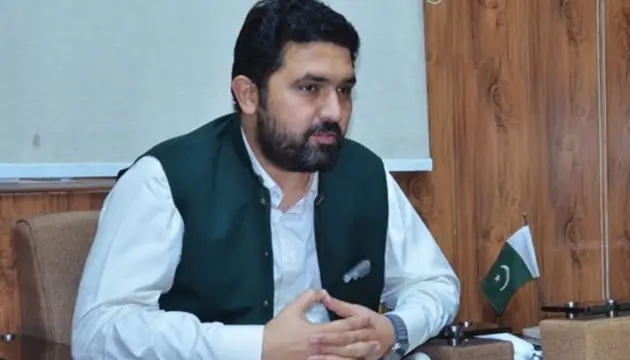Early Life and Education
Mohammad Sohail Afridi, the newly elected Chief Minister of Pakistan’s Khyber Pakhtunkhwa (KP) province, hails from Bara tehsil in the Khyber district — a region once at the centre of Pakistan’s war on terror but now slowly transforming through political inclusion and development.
Afridi holds a Bachelor’s degree in Economics from the University of Peshawar, one of the province’s leading academic institutions. From his student days, he was deeply involved in campus politics, emerging as a prominent youth leader. He served first as the President of the Insaf Students Federation (ISF) KP, and later as the Provincial President of the Pakistan Tehreek-e-Insaf (PTI) Youth Wing.
His early political activism focused on mobilising young voters, promoting education, and advocating for better employment opportunities — issues that continue to shape his political agenda today.
Also Read: Sohail Afridi Elected as new Chief Minister of Khyber Paktunkhawa
Entry into Mainstream Politics
Sohail Afridi entered mainstream politics during the 2024 by-elections, contesting as an independent candidate from PK-70 (Khyber-I). Though he ran independently, his campaign received unofficial backing from Pakistan Tehreek-e-Insaf (PTI), the party led by former Prime Minister Imran Khan.
In a closely watched race, Afridi defeated Bilawal Afridi, the candidate from the Pakistan Muslim League-Nawaz (PML-N). His victory marked his first entry into the Khyber Pakhtunkhwa Provincial Assembly, symbolising a broader trend of younger, local leaders gaining traction in Pakistan’s political landscape.
His success in the polls was attributed to his strong grassroots connections, his reputation as a reform-minded youth leader, and his focus on issues directly affecting his constituency — such as education, infrastructure, and economic revitalisation in the tribal belt.
From Provincial Minister to Chief Minister
After his election, then–Chief Minister Ali Amin Gandapur appointed Afridi as Special Assistant on Communication and Works, a critical department overseeing infrastructure development. His performance in that role was reportedly well-received within the provincial cabinet.
Later, he was promoted to Provincial Minister for Higher Education, where he pushed for the modernisation of universities and technical institutes across Khyber Pakhtunkhwa. Under his tenure, the Higher Education Department initiated new scholarship programs and sought to expand digital learning facilities in remote districts.
Afridi’s administrative competence and ability to engage with both bureaucrats and local communities helped him build credibility as a future leader within PTI’s ranks.
Election as Chief Minister
In a special session of the Khyber Pakhtunkhwa Assembly, chaired by Speaker Babar Saleem Swati, members voted to elect the province’s new Chief Minister. Afridi secured 90 votes in his favour — a comfortable majority — while opposition parties staged a walkout in protest, alleging procedural issues in the vote.
Following his election, Afridi thanked party members and supporters for their confidence, vowing to prioritise good governance, youth empowerment, and transparent administration. His selection marks the beginning of a new political chapter in Khyber Pakhtunkhwa, which has been governed by PTI since 2013.
Challenges Ahead
Sohail Afridi takes office at a challenging time for the province. Khyber Pakhtunkhwa faces economic hardship, security concerns, and a budgetary shortfall exacerbated by reduced federal transfers. The province’s merger with the former Federally Administered Tribal Areas (FATA) also continues to pose governance challenges, particularly in delivering services and infrastructure to newly integrated districts.
Analysts note that Afridi’s success will depend on his ability to balance development priorities with political stability. As a representative of a younger generation of politicians, he faces expectations to bring innovation, transparency, and inclusivity to provincial governance.
A Generational Shift in KP Politics
Afridi’s rise reflects a generational shift in Khyber Pakhtunkhwa’s political landscape. With his background rooted in youth activism and his emphasis on education and reform, he embodies a move away from traditional tribal and patronage-based politics toward issue-driven leadership.
While it remains to be seen how effectively he can deliver on his promises, his election underscores a growing appetite among voters — particularly young Pakistanis — for new voices and fresh leadership.
As Chief Minister, Mohammad Sohail Afridi now faces the daunting task of turning that promise into lasting progress for the people of Khyber Pakhtunkhwa.















